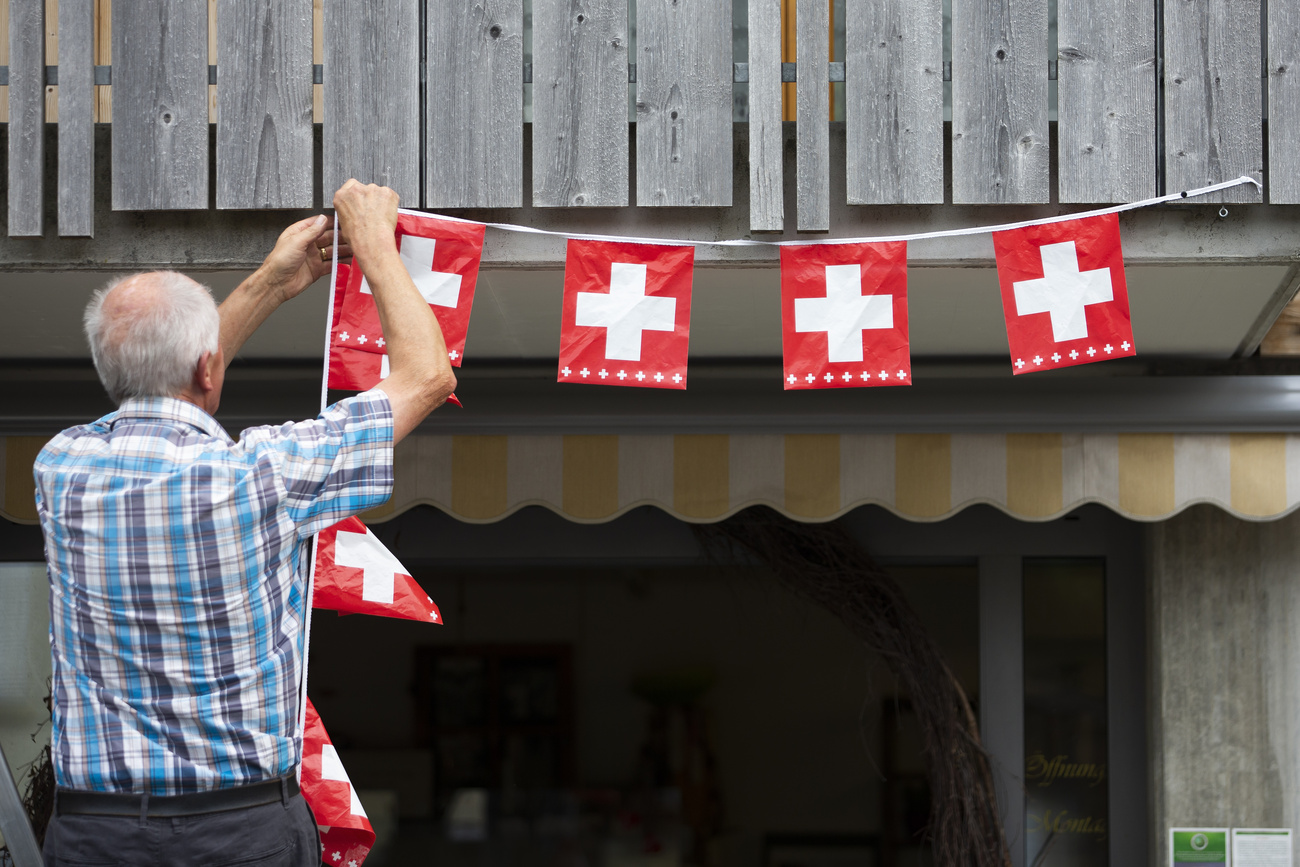
Report chides banks for investing in bombs

Two advocacy groups based in the Netherlands and Switzerland criticize hundreds of financial institutions – including four Swiss banks – for investing nearly half a trillion dollars in nuclear weapon producing companies.
A report from PAX and ICANExternal link on Thursday lists 382 banks, insurance companies, pension funds and asset managers from 27 nations that as of January 2012 were found to “invest significantly in the nuclear weapons industry”.
They invested more than $493 billion (CHF441 billion) in 26 companies based in France, India, Italy, the Netherlands, the United Kingdom and the United States that were “significantly involved in maintaining and modernizing” French, Indian, British and American nuclear arsenals, the report finds.
That is a drop across the board from last year’s findings, which identified 411 financial institutions investing $402 billion in 28 nuclear weapons producers. The report, which aims to name and shame companies and countries into changing their behaviour, credits an “increase in comprehensive policies stigmatising nuclear weapons” with helping to curb such investments.
Swiss investment rises
But the picture is mixed in Switzerland. The number of Swiss financial institutions listed in the reports dropped from seven last year down to four this year: the two biggest Swiss banks, UBS and Credit Suisse, and two leading private bankers, Pictet and Edmond de Rothschild.
Their investments rose to $6.6 billion in the 2015 report, which said UBS provided financing of $5.122 billion; Credit Suisse, $1.41 billion; Edmond de Rothschild, $50 million; and Pictet, $43 million.
That’s up from the $5.2 billion in the 2014 report, which reflects investments since January 2011. According to those figures, UBS provided financing of $3.685 billion; Credit Suisse, $1.422 billion; MainFirst Holding, $86 million; Swiss Re, $27 million; GAM Holding, $7 million; Lombard Odier Darier Hentsch, $7 million; and Swisscanto Holding, $5 million.
Groups react
The investments by the two biggest Swiss banks are incomprehensible, said two other Swiss advocacy groups, Switzerland without an ArmyExternal link, and Business and Human Rights ConformExternal link, in a joint statement with one of the report’s authors, ICAN.
The groups accused the banks of using “loopholes” in Swiss law aimed at prohibiting the financing of nuclear weapons, and of undermining Swiss and other nations’ diplomatic efforts toward international nuclear disarmament. Diplomacy on that front has lagged for decades, however.
The United Nations’ Conference on DisarmamentExternal link has been deadlocked since its last-negotiated treaty, the 1996 Comprehensive Nuclear Test Ban Treaty. Most countries ratified the treaty, but it has not entered into force because eight of 44 designated “nuclear capable” nations have not voted to ratify it: Iran, Israel, Egypt, India, Pakistan, North Korea, the US and China.

In compliance with the JTI standards
More: SWI swissinfo.ch certified by the Journalism Trust Initiative
















![The four-metre-long painting "Sonntag der Bergbauern" [Sunday of the Mountain Farmers, 1923-24/26] had to be removed by a crane from the German Chancellery in Berlin for the exhibition in Bern.](https://www.swissinfo.ch/content/wp-content/uploads/sites/13/2025/12/01_Pressebild_KirchnerxKirchner.jpg?ver=a45b19f3)










You can find an overview of ongoing debates with our journalists here . Please join us!
If you want to start a conversation about a topic raised in this article or want to report factual errors, email us at english@swissinfo.ch.